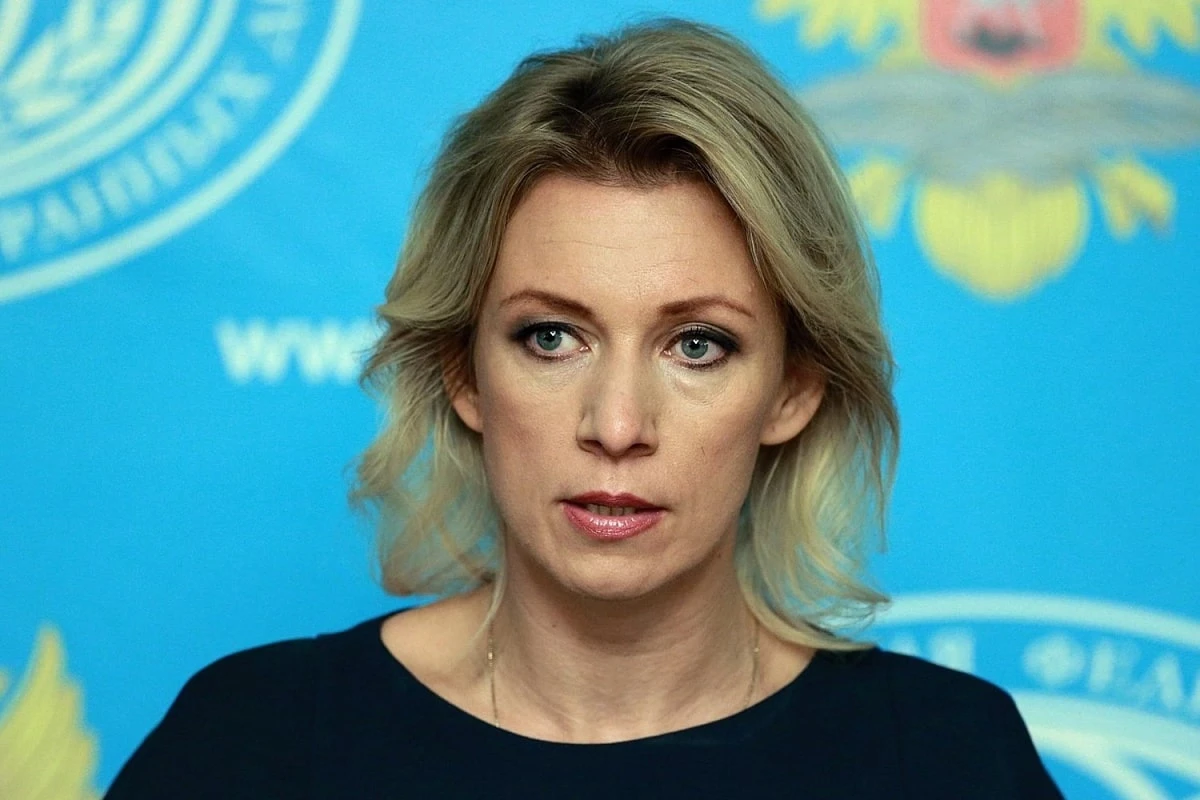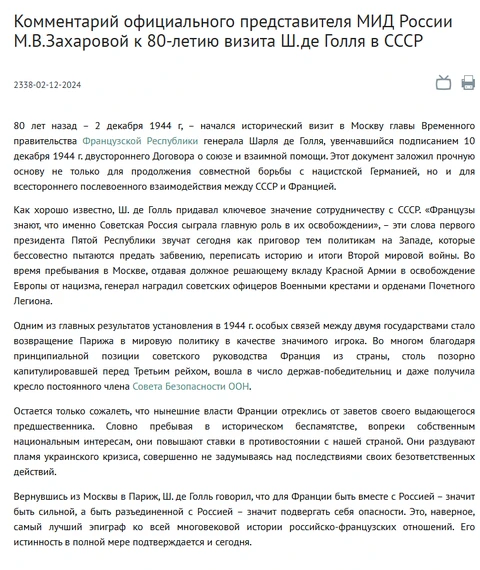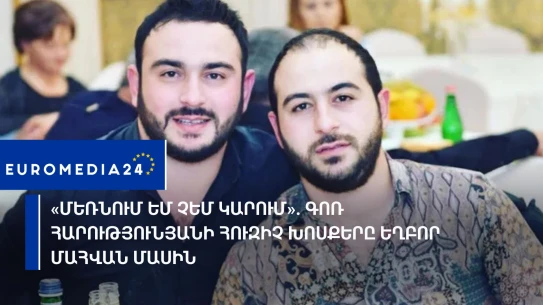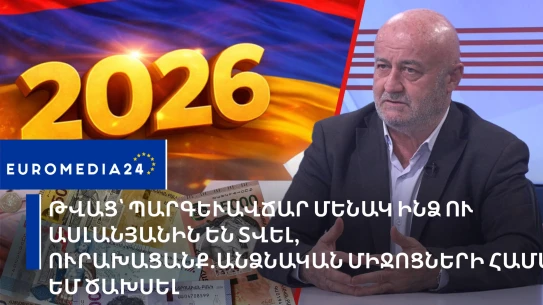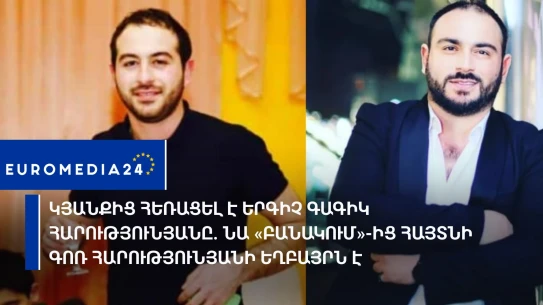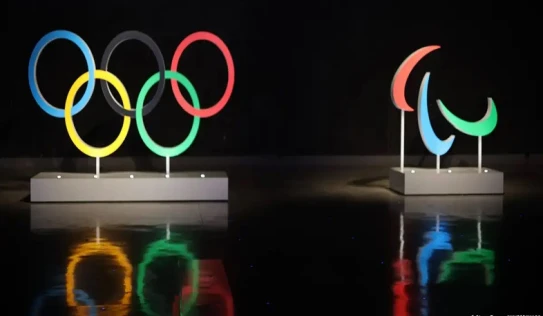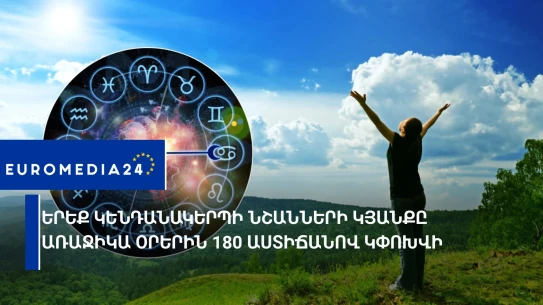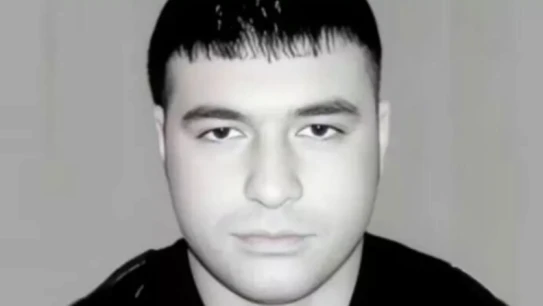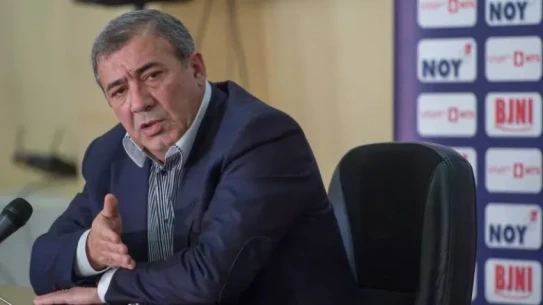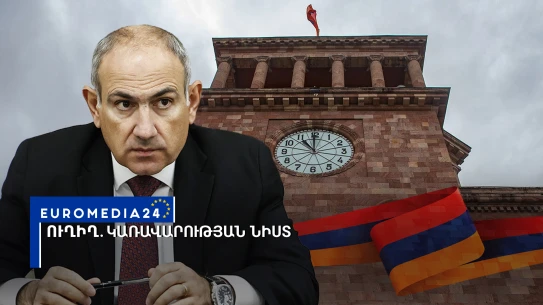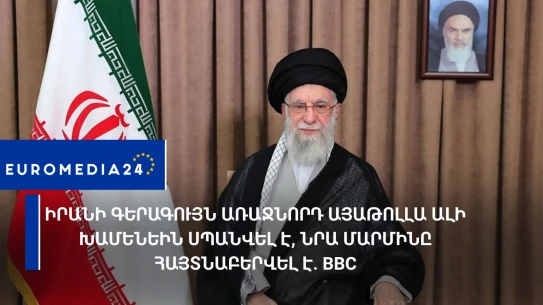“The French know that it was Soviet Russia that played the main role in their liberation,” these words of the first president of the Fifth Republic sound today like a verdict on those politicians in the West who are unscrupulously trying to consign to oblivion, rewrite the history and results of the Second World War. During his stay in Moscow, paying tribute to the decisive contribution of the Red Army to the liberation of Europe from Nazism, the general awarded Soviet officers with the Military Cross and the Order of the Legion of Honor.
One of the main results of the establishment of special ties between the two states in 1944 was the return of Paris to world politics as a significant player. Largely thanks to the principled position of the Soviet leadership, France, from a country that so shamefully capitulated to the Third Reich, became one of the victorious powers and even received a seat as a permanent member of the UN Security Council. One can only regret that the current authorities of France have renounced the behests of their outstanding predecessor. As if in historical unconsciousness, contrary to their own national interests, they are raising the stakes in the confrontation with our country.
They are fanning the flames of the Ukrainian crisis without thinking at all about the consequences of their irresponsible actions. Returning from Moscow to Paris, Charles de Gaulle said that for France, to be together with Russia means to be strong, and to be separated from Russia means to expose itself to danger. This is probably the best epigraph to the entire centuries-old history of Russian-French relations. Its truth is fully confirmed today.
















